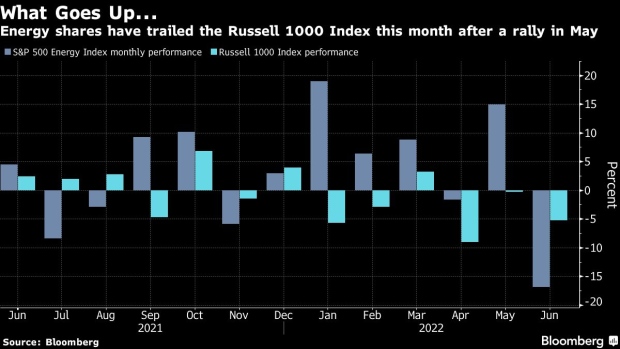Jun 24, 2022
Jittery Markets Switch Winners and Losers in Russell Rebalance
, Bloomberg News

(Bloomberg) -- When companies are added to indexes their stock prices usually rise, while the shares of the companies being kicked out typically fall. But that tradition has been turned on its head this month.
The annual rebalancing of FTSE Russell’s stock indexes takes affect after the bell Friday. And since the preliminary list of changes was announced on June 3, companies expected to be added to the Russell 1000 Index have lost 9.6%, while the deletions have lost 7.8% since, data compiled by Wells Fargo show. What’s more, additions to the Russell 2000 Index are down 11.1% since the announcement, compared with a 10.8% drop in the deletions.
That’s the opposite of what’s supposed to happen, as index-trackers such as exchange-traded funds buy the shares of the companies being added and sell those of the companies being cut, causing the former to rise and the latter to fall.
Blame it on swings in the energy sector, which has been the best performing group in the S&P 500 with a 30% gain this year and contains some of the key additions to the Russell indexes. This has been a particularly difficult month for energy shares, with the S&P 500 Energy Index down 21% since hitting a high on June 8. Ovinitiv Inc., which is graduating to the Russell 1000 Index from the small-cap Russell 2000 Index, is down 3% this week.
FTSE Russell’s gauges, including the Russell 3000 and Russell 1000, are benchmarked by $20 trillion of money globally. This year’s reconstitution will see 45 companies added to the Russell 1000.
©2022 Bloomberg L.P.






